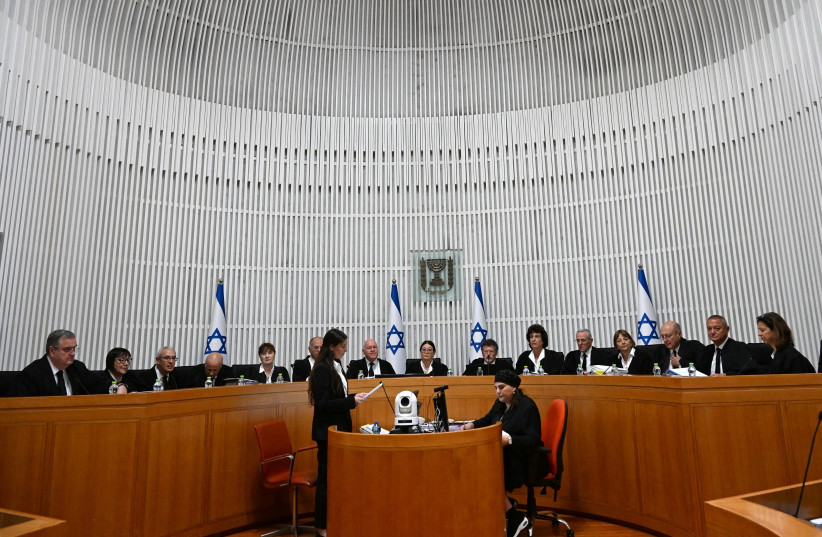Government ministers accused the High Court of Justice on Wednesday of cancelling democracy with its Thursday hearing in which the court will debate striking down the Incapacitation Law.
The court will hear petitions from NGOs and various elements of Yisrael Beytenu who claimed the law should be struck down due to a conflict of interest because of Prime Minister Benjamin Netanyahu's ongoing legal troubles including his corruption trial.
The law is an amendment to the Basic Law: Government and sets the terms for declaring a prime minister to be incapacitated. According to the law, this can only be done when the prime minister is deemed unable to serve for physical or mental health reasons.
What is at risk?
Ahead of the hearing, ministers and MKs from the coalition said that the High Court risked destroying Israeli democracy and throwing millions of votes away with the hearing.
"Tomorrow, judges will sit and decide whether to throw away 2.5 million votes who chose the current government," said Environment Protection Minister Idit Silman. "I'll leave it to you to decide whether or not that is democracy."

Communications Minister Shlomo Karhi blamed the law on the opposition trying to get Netanyahu declared as incapacitated.
"The Incapacitation Law is a law that never should have had to be legislated," he said. "It came to be as a result of people with delusions of grandeur who think they're above democracy. For years, the government and the Knesset respected High Court rulings and the High Court respected democracy and the Basic Laws. What the High Court is going to do is question whether Israel's citizens have the right to choose who their prime minister is or not."
He added that if the High Court struck down the law, the government would not accept the ruling.
Otzma Yehudit MK Yitzhak Kreuzer said he had warned of the eventuality of the High Court debating the issue and accused it of "cancelling the institution of the prime minister as we know it."
Religious Zionist Party MK Simcha Rothman joined Karhi in saying that the government won't accept a ruling to strike down the law.
"I think every involvement of the High Court in any basic law, big or small, is cancelling the elections," he said.
Rothman went on to accuse the High Court of not wanting a democratic Jewish nation.
Thursday's hearing is the second hearing the High Court is holding this month on whether or not to strike down an amendment to a basic law with the first being the hearing on the law to limit the unreasonableness clause which was held earlier this month.
